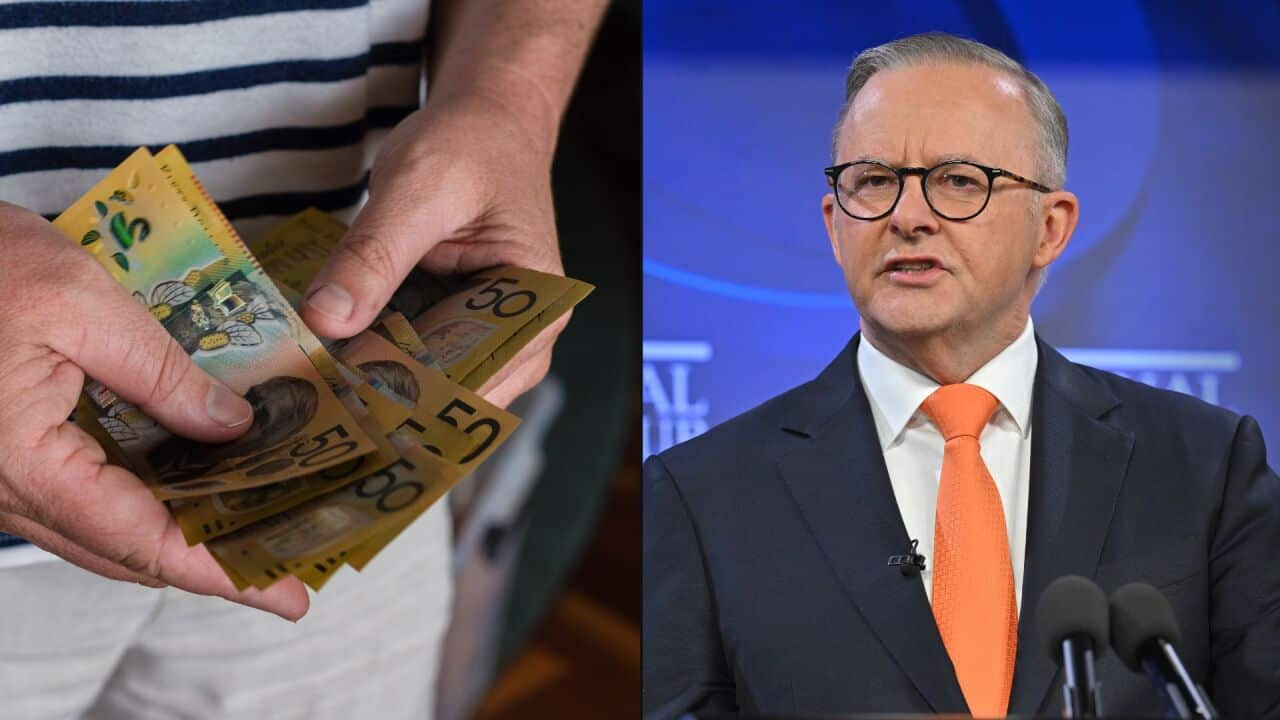The government has defended its second budget surplus as Australians struggle with rising cost of living pressures.
The surplus came in at $15.8 billion for the last financial year and marks the first time since the 2006-7 and 2007-8 budgets there's been back-to-back surpluses.
With the bottom line Treasurer Jim Chalmers attributed the economic win to responsible spending while supporting families.
"One of the reasons we are proud of the consecutive surpluses that we've delivered for the first time in almost two decades is we haven’t done that or cost of living relief. We've done that and cost-of-living relief," he said on Monday.
"Spending in the last financial year was much lower than anticipated at budget, and revenue was lower as well ... So this bigger surplus is not because we taxed more, it's because we spent less."
Chalmers said the surplus was a sign of "responsible economic management", pointing to total revenue coming in $3.7 billion lower than forecast.
While personal income tax did make up more than half the government's total tax intake, it collected $5.3 billion less in tax receipts than estimated.
Experts agreed the government had "resisted temptation" to spend money amid criticism that households are going backward.
Did the government cut spending?
Dr John Hawkins, a senior economics lecturer at the University of Canberra, said a portion of the $10.2 billion in payments saved were outside the government's control.
"The reason that the surplus is a bit bigger than the budget number is mostly delays to various things," he told SBS News.
"So, for example, some transport projects, there was bad weather, so they haven't done as much work as they were expecting, and so they haven't spent quite as much money as they expected."
Those include delays in agreements with states and state delays in hitting education, remote housing, health, water, and environment program milestones.
Finance Minister Katy Gallagher admitted a "sizeable chunk" of the government's surplus was a result of lower than anticipated demand for programs.
These include aged care, the National Disability Insurance Scheme, COVID-19 vaccination payments, onshore detention, and other grant programs.
Despite some of the spending on delayed programs being pushed into future budgets, Hawkins said the outcome showed discipline by the government.
"They have been disciplined in that they've resisted the temptation to spend a lot of money. And the budget estimates of how much revenue they get and how much they'd spend have been more or less accurate," he said.
How does a budget surplus affect your household?
Crossbench senator Jacqui Lambie said households doing it tough did not "give a stuff" about surpluses.
"Nobody's talking about a surplus, and if they were and they truly understood, they'd be saying, well, how about you put some of that surplus out to us, so we can put bread and milk on the table for our kids," she told Nine's Today show.
Meanwhile, Opposition treasury spokesperson Angus Taylor said, "households have been going backward", claiming the standard of living had collapsed under Labor.

Senator Jacqui Lambie said Australians need help feeding their families. Source: AAP / Mick Tsikas
"These surpluses are all about fighting inflation, making room for the cost of living relief, building a buffer against global economic uncertainty and also paying down the Liberal debt that we inherited so that we pay less interest on it," Chalmers said.
He said less debt meant less money spent on interest, estimating the government would save $80 billion in interest payments alone.
Hawkins highlighted this can be spent on schools or hospitals in the future, without having to tax people more.
Deloitte economist Stephen Smith also praised the government's restraint in spending.
"The cost of living crisis is really very challenging for many Australians. But this is a really difficult balance. If the government spends too much, it adds to inflation. That makes it more challenging for all Australian households," he told SBS News.
"I think this result shows that the government, at least in the 2023 to 24 financial year, has shown a bit of restraint and that on balance has probably helped to keep inflation a little lower than it otherwise would've been."
Treasury estimates a $28 billion deficit for the next financial year. With higher spending in upcoming budgets and low iron ore prices, Smith agrees a third surplus is "very unlikely".












